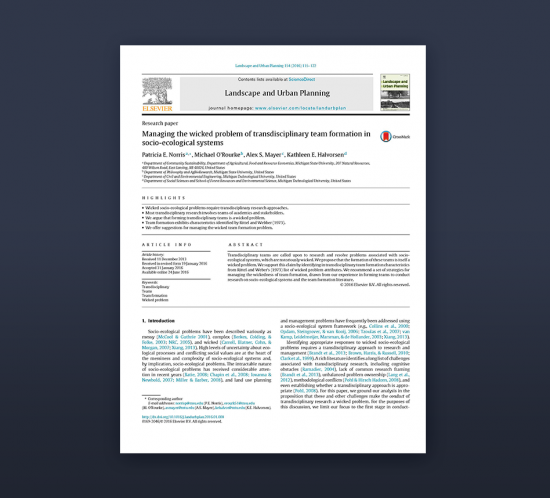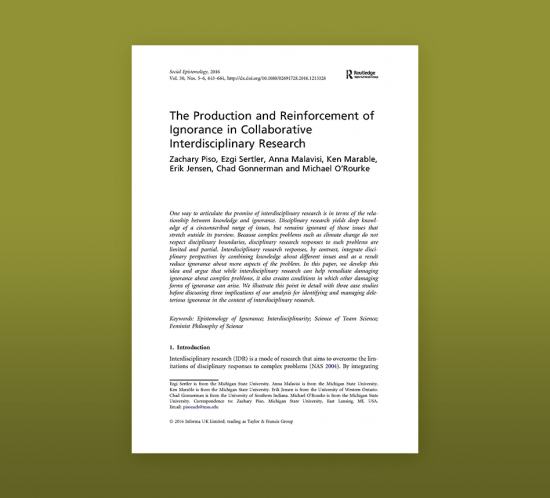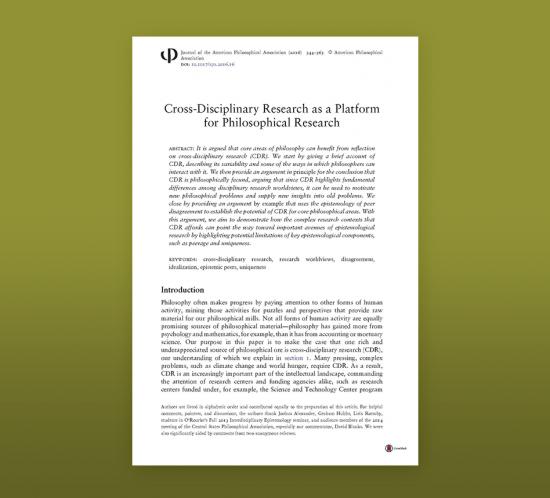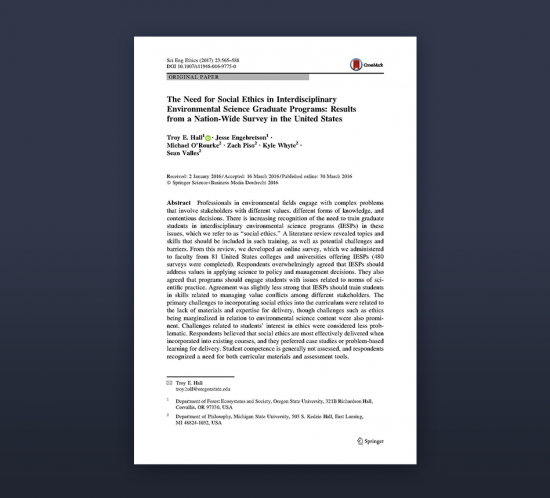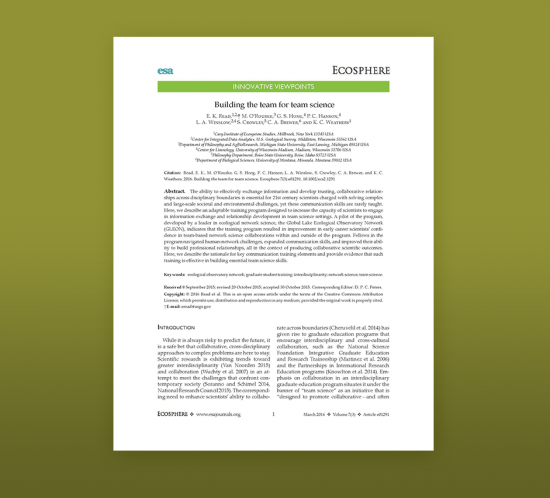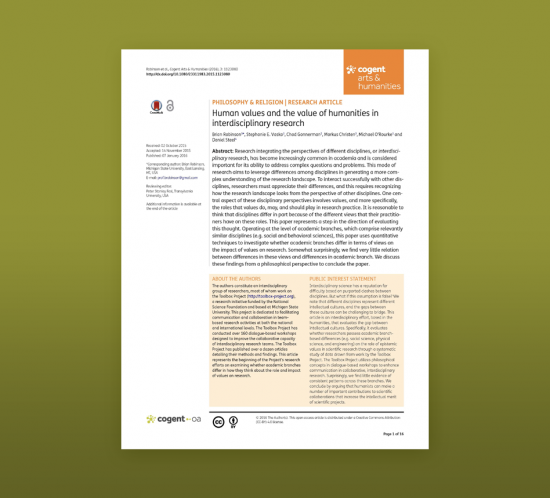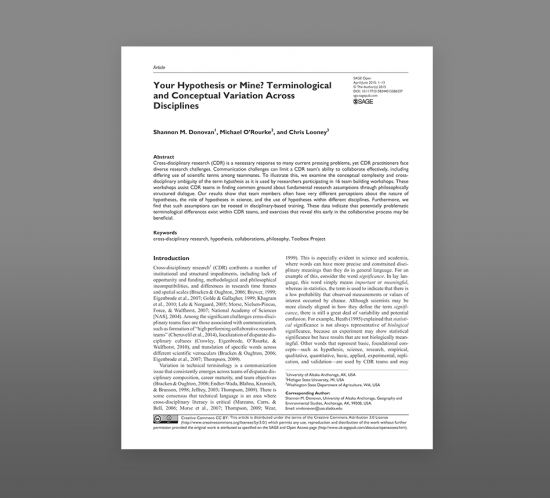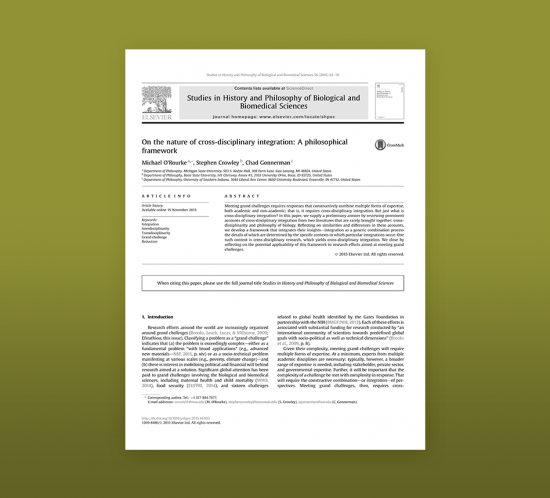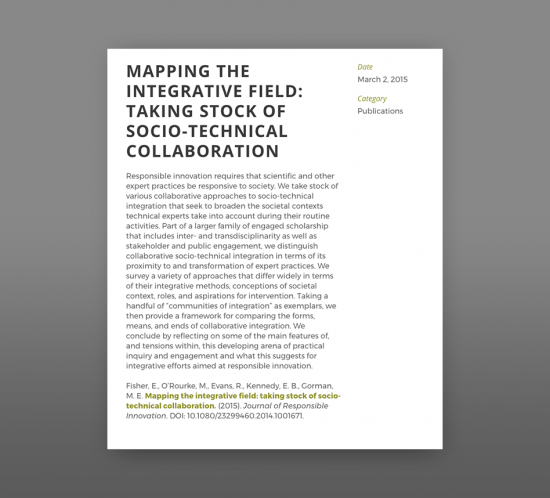Managing the wicked problem of transdisciplinary team formation in socio-ecological systems
Transdisciplinary teams are called upon to research and resolve problems associated with socio-ecological systems, which are notoriously wicked. We propose that the formation of these teams is itself a wicked problem. We support this claim by identifying in transdisciplinary team formation characteristics from Rittel and




